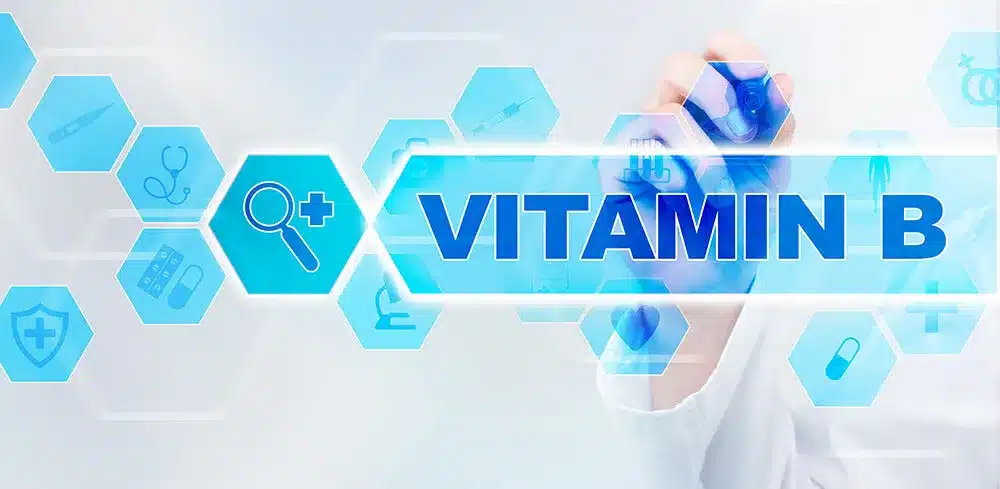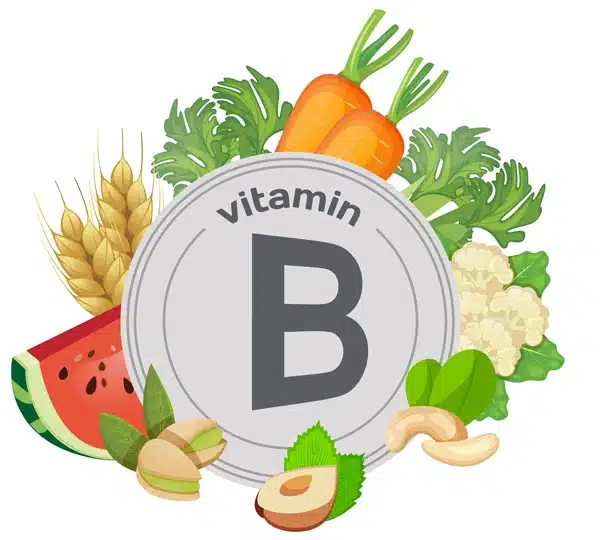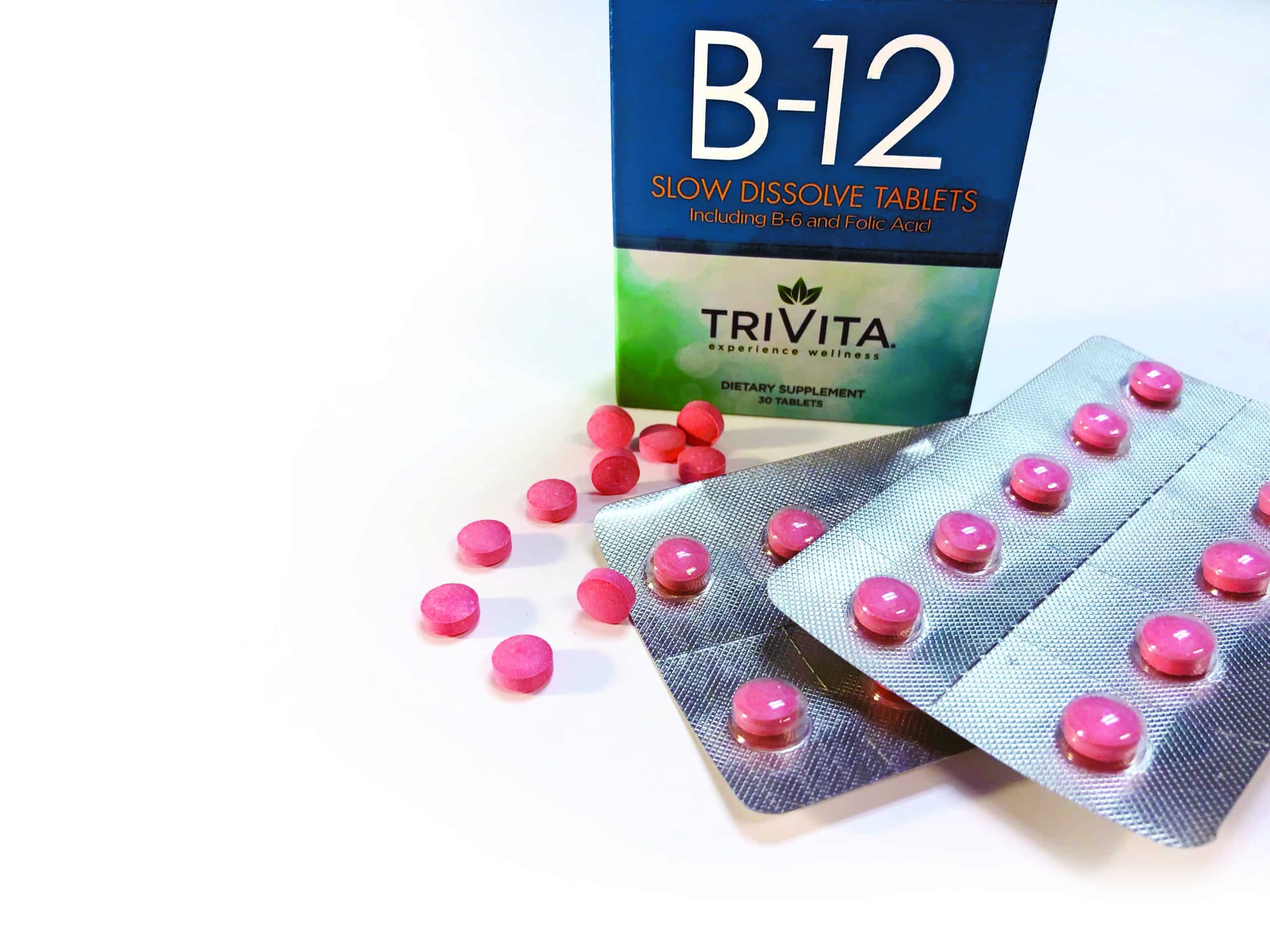Your cart is currently empty!
Category: Natural Energy
-
Mental Clarity and Energy Support at Every Age
[ux_image id=”24415″]
Are you or do you know someone who is struggling with memory issues, feeling sad or anxious, or lacking energy? You are not alone, and there are natural ways to support your mental clarity and energy levels. Let’s explore some top nutraceuticals that may help you feel better and more energized.
Plant-Based Support
One powerful plant-based supplement is Bacopa monnieri, an aquatic plant rich in antioxidants. Research has shown that Bacopa monnieri may protect the brain from oxidative damage and improve cognitive function. This plant has also been linked to improved memory and decreased anxiety after just 12 weeks of use.1-3
Mineral Support
Lithium orotate is a form of lithium that is found naturally in food and water. It has been shown to be an effective mood stabilizer without the dangerous side effects of prescription lithium. In fact, studies have found that small doses of lithium can prevent cognitive decline and support brain health.4-6
B Vitamin Support
B vitamins are water soluble and essential for brain function, nerve function, cell production, DNA regulation and energy production. Pantothenic acid, also known as vitamin B5, plays a crucial role in regulating biochemical pathways and supporting muscle and nerve function. Folic acid, or vitamin B9, is important for protein metabolism and DNA synthesis, especially during pregnancy. And vitamin B12, or cobalamin, is vital for energy production and cognitive function. Deficiencies in these vitamins can lead to a range of symptoms, from weakness and fatigue to memory loss and depression.7-1
[ux_stack distribute=”center” align=”start” gap=”0.75″]
[ux_image id=”24417″ image_size=”medium” width=”38″ margin=”0px 0px 0px 0px”]
[ux_image id=”24419″ width=”37″ margin=”0px 0px 0px 0px”]
[/ux_stack]
TriVita’s Exclusive Products
TriVita offers two exclusive products that include these powerful nutrients and cannot be purchased elsewhere. All of TriVita’s products are science supported and made in FDA-approved facilities with the most rigorous standards of quality control to help ensure purity, efficacy and safety.
NeuroShine® was developed and formulated for TriVita by top clinicians from Johns Hopkins and Mayo Clinic. It contains Bacopa monnieri, vitamin B5 and a micro dose of lithium orotate, shown to help promote cognitive function and protect against neurodegeneration.
HCY Guard® is a sublingual supplement, which increases the absorption of its methylated B12 and B9, along with seven other ingredients such as amino acids and other nutrients to support brain health, energy levels and healthy inflammation regulation.
In Conclusion
Supporting your mental clarity and energy levels while managing chronic inflammation is crucial for overall well-being. By incorporating these products offered exclusively by TriVita into your daily routine, you may enhance your cognitive function, mood and energy levels while enhancing healthy inflammation. Take control of your health and support your wellness today!
-
https://pubmed.ncbi.nlm.nih.gov/26413126/
-
https://www.ncbi.nlm.nih.gov/books/NBK589635/
-
https://www.sciencedirect.com/science/article/abs/pii/S0378874116304950
-
https://www.ncbi.nlm.nih.gov/pmc/articles/PMC4063497/
-
https://www.ncbi.nlm.nih.gov/pubmed/22746245
-
https://www.ncbi.nlm.nih.gov/pmc/articles/PMC4659557/
-
https://ods.od.nih.gov/factsheets/PantothenicAcid-Consumer/#:~:text=Pantothenic%20acid%20(also%20called%20vitamin,making%20and%20breaking%20down%20fats.
-
B9 Folate - Consumer (nih.gov)
-
https://ods.od.nih.gov/factsheets/Folate-Consumer/
-
VitaminB12-Consumer.pdf (nih.gov), Vitamin B12, cognition, and brain MRI measures | Neurology
-
https://www.ncbi.nlm.nih.gov/pmc/articles/PMC5130103/
-
https://journals.plos.org/plosone/article?id=10.1371/journal.pone.0012244
-
https://www.ncbi.nlm.nih.gov/pmc/articles/PMC7077099/#:~:text=Vitamin%20B12%20deficiency%20is%20linked,markers%20of%20Vitamin%20B12%20deficiency.
-
https://journals.plos.org/plosone/article?id=10.1371/journal.pone.0012244
-
https://www.ncbi.nlm.nih.gov/pmc/articles/PMC7688056/
-
-
Unlocking Enhanced Strength and Stamina: Essential Amino Acids & Beet Root for Aging Adults
As we age, maintaining strength and stamina becomes increasingly vital for an active and fulfilling life. Fortunately, there are natural supplements that can assist in this journey. Essential amino acids (EAAs) and beet root offer a wealth of benefits that address the unique needs of individuals aged 50 and above.
Myohealth™ — 9 EAAs for Muscle Mass & Function
TriVita’s Myohealth is a great-tasting, easy-to-mix powder that contains all nine essential amino acids shown to build lean muscle, improve recovery time and improve stamina at any age. Essential amino acids, the building blocks of protein, play a crucial role in preserving muscle mass and function. With age, muscle loss becomes more prevalent, impacting mobility, balance and overall quality of life. By ensuring an adequate intake of EAAs through diet or supplementation, older adults can support muscle repair, growth and maintenance, thus enhancing strength and resilience.
Moreover, EAAs aid in reducing the breakdown of muscle tissue during physical activity, which becomes increasingly important as we age and recovery time lengthens. By providing the necessary nutrients for muscle recovery, EAAs help older adults stay active and engaged in their favorite activities without experiencing excessive fatigue or soreness.
Nitric Oxide Plus — Beet Root for Blood Flow & Endurance
In addition to EAAs, beet root emerges as a powerful ally in the quest for enhanced strength and stamina.
TriVita’s Nitric Oxide Plus is another great-tasting, easy-to-mix powder. It contains concentrated beet root, two additional amino acids shown to improve vasodilation and blood flow, and a mild blood thinner known as horse chestnut. Rich in nitrates, beet root promotes better blood flow and oxygen delivery to muscles, which can be particularly beneficial for aging adults dealing with cardiovascular issues or decreased aerobic capacity. Improved blood circulation not only boosts energy levels but also supports better endurance, allowing individuals to engage in physical activities for longer durations with less effort.
Combining the benefits of essential amino acids and beet root offers a comprehensive approach to maintaining strength and stamina in older age. Whether it’s enjoying daily walks, participating in fitness classes or pursuing outdoor hobbies, incorporating these natural supplements into one’s routine can make a significant difference in overall vitality and well-being.
By prioritizing nutrition and supplementation tailored to their specific needs, individuals can continue to lead active, fulfilling lives, embracing each day with strength, stamina and vitality at any age.

Paul Bernitt, DHH
Board-Certified Doctor of Holistic Health and
Director of Wellness Services, TriVita, Inc. -

Ashwagandha, the Ancient Adaptogenic Herb
Statistics suggest that stress in America is on the rise, with as much as 63% of the U.S. workforce having considered leaving their jobs to escape work-related stress. According to a Harris Poll conducted for the American Psychological Association, the economy, our jobs and health issues rank among the top stressors for survey respondents. The World Health Organization estimates that 12 billion workdays are lost annually worldwide due to anxiety or depression, at a cost of one trillion U.S. dollars per year.
With the ever-rising costs of healthcare and less access to in-person doctor visits, self-care is becoming a more important means of maintaining our physical and mental wellbeing.
As APA President Rebecca W. Brendel, M.D., J.D. states, “What’s promising is that many Americans are aware of their mental health needs and taking steps to improve their own mental health.”

The Ashwagandha Plant, Withania Somnifera
Stress is not just a modern-day dilemma. People have sought solace from worry and anxiety for centuries. Since life began in a Garden, it makes sense to consider the plants that God has given us as potential sources for wellness solutions. One plant in particular has shown great promise in this area, both practically and scientifically: Ashwagandha.
Originally found in the driest parts of India, the Middle East and parts of Africa, Ashwagandha grows as a desert shrub. This hearty evergreen goes by many names, including winter cherry, Indian ginger and even poison gooseberry.

Traditional Uses
The ancient peoples of the Indian subcontinent used the plant’s roots, leaves, berries and even bark for myriad medicinal purposes.
The American Botanical Society says that the dried root and whole plant are used in Indian folk medicine and references the claims of ethnobotanist James Duke, PhD, that various parts of the Ashwagandha plant are used as folk remedies for everything from hypertension and senility to asthma and hiccups.
This ancient herb has garnered newfound interest in our day for its adaptogenic properties.
adaptogen – Adaptogens are natural substances, such as herbs and roots, that may help the body adapt to and better manage stress.
The Role of Cortisol
Cortisol is a hormone our body releases as part of the fight-or-flight response. When we feel threatened, our adrenal glands release hormones including cortisol and adrenaline into the bloodstream. These hormones work together to raise heart rate, increase glucose in the bloodstream and help ensure your body can repair itself more efficiently.
cortisol – Cortisol is the body’s primary stress hormone, which is released by the adrenal glands in response to a perceived threat
This natural process is helpful if you’re facing a dangerous or threatening situation. When your body is constantly in fight-or-flight mode because of work deadlines or difficulties in a relationship, however, chronic stress can lead to a number of health problems.
According to the Mayo Clinic, overexposure to cortisol puts you at increased risk for health problems such as these:
- Anxiety
- Depression
- Digestive problems
- Headaches
- Muscle tension and pain
- Heart disease, heart attack, high blood pressure and stroke
- Sleep problems
- Weight gain
- Memory and concentration impairment
Studies have shown that Ashwagandha helps balance the stress hormone cortisol, which should be higher in the daytime and lower at night.
Less Stress > Balanced Cortisol > Lower Blood Pressure > Greater Wellness]
Ashwagandha for Stress Relief
Genetics and life experiences help determine how you react to stress. Regardless of your background or whether you’re able to change your circumstances, there are steps you can take to manage stress better. You may want to keep a journal, volunteer in your community or take up a hobby.
As part of a healthy lifestyle, including a healthy diet, drinking plenty of water and getting seven to nine hours of restful sleep each night, you might want to consider taking an Ashwagandha supplement to help manage stress.
Several studies have supported the assertion that the herb may lessen perceived levels of stress and anxiety–even significantly.
TriVita’s Ashwagandha KSM-66® supplement was developed to help reduce stress and to promote sleep and faster recovery. Unlike many other Ashwagandha supplements, the serving size of our formulation is 600mg, equal to that used in the clinical studies.
Studies of this KSM-66 formulation have demonstrated a significant reduction in perceived stress, as well as better quality of sleep and increased alertness when rising. Less stress and healthier cortisol levels could contribute to better overall health and a greater sense of wellbeing.
References
- https://www.stress.org/daily-life/#:~:text=key%20stress%20statistics
- https://www.apa.org/news/press/releases/stress/2022/october-2022-topline-data.pdf
- https://www.who.int/news-room/fact-sheets/detail/mental-health-at-work#:~:text=Globally%2C%20an%20estimated%2012%20billion,per%20year%20in%20lost%20productivity
- https://www.psychiatry.org/news-room/news-releases/americans-anticipate-higher-stress-at-the-start-of#:~:text=americans%20are%20telling
- https://www.herbalgram.org/resources/herbalgram/issues/99/table-of-contents/hg99-herbprofile-ashwagandha/
- https://www.mayoclinic.org/healthy-lifestyle/stress-management/in-depth/stress/art-20046037
- https://www.goodhousekeeping.com/health/diet-nutrition/a40705977/ashwagandha-health-benefits/#:~:text=may%20help%20dial%20down%20stress
- https://www.forbes.com/health/body/ashwagandha-benefits//#:~:text=relieves%20stress%20and%20anxiety
-

The Top 10 Reasons You Should Take Ashwagandha
Unleash the Power of Nature

In recent years, there has been a growing interest in natural remedies and herbal supplements for promoting well-being and addressing various health concerns. Among these, Ashwagandha, also known as Withania somnifera, has gained significant popularity for its potential health benefits. Derived from a small shrub native to India, Ashwagandha has been used for centuries in that arid desert region. Let’s take this opportunity to explore the top 10 science-supported benefits of incorporating Ashwagandha into your daily routine.
1. Stress and Anxiety Relief
Ashwagandha is renowned for its adaptogenic properties, which help the body adapt to stress. Several studies have demonstrated its effectiveness in reducing stress and anxiety levels. By regulating cortisol, the stress hormone, Ashwagandha may promote a sense of calmness, reduce anxiety and enhance overall resilience to stressors.
2. Improved Cognitive Function
Research suggests that Ashwagandha may support cognitive function and memory. Ashwagandha extract exhibited improved cognitive performance such as increasing short-term working memory and sustained attention. Preclinical studies are showing its neuroprotective properties may aid in combating neurodegenerative conditions by reducing oxidative stress and inflammation in the brain.
3. Enhanced Energy and Stamina
Ashwagandha has been traditionally used as a rejuvenating herb to enhance energy levels and stamina. Ashwagandha supplementation has been shown to increase cardiorespiratory endurance and overall physical performance during physical activity, making it an excellent choice for athletes and individuals with active lifestyles.
4. Immune System Support
Studies have shown that Ashwagandha possesses immunomodulatory properties, helping to strengthen the immune system. It has been shown to enhance immune response and increase circulating antibody cells, which defend against infection due to viruses and toxins.
5. Hormonal Balance
For women experiencing hormonal imbalances, Ashwagandha may be a game-changer. It has been shown to aid in the regulation of the endocrine system, reducing symptoms of PMS and menopause, and promoting overall hormonal balance. Ashwagandha has been used for centuries as an aphrodisiac, as it is believed to enhance sexual health by improving fertility, boosting testosterone levels in men, and increasing libido in both men and women.
6. Cardiovascular Health
Research suggests that Ashwagandha may have beneficial effects on cardiovascular health. Ashwagandha extract helped improve several markers of cardiovascular health, including cholesterol and triglyceride levels.
7. Anti-Inflammatory Properties
Ashwagandha exhibits potent anti-inflammatory properties, which have been demonstrated in various studies. Ashwagandha has been shown to reduce inflammation and potentially alleviate conditions associated with chronic inflammation.
8. Sleep Quality Improvement
Ashwagandha’s calming and stress-relieving properties may contribute to better sleep quality. Ashwagandha supplementation has been shown to improve sleep, the sleep-wake cycle and sleep quality among participants with insomnia.
9. Muscle Strength and Recovery
Athletes and fitness enthusiasts may benefit from Ashwagandha’s ability to improve muscle strength and aid in post-exercise recovery. Ashwagandha supplementation has been shown to significantly increase muscle strength and reduce exercise-induced muscle damage.
10. Anti-Aging Benefits

The powerful antioxidants found in Ashwagandha may protect the body against cellular damage caused by free radicals, thus slowing down the aging process. Its rejuvenating properties have been shown to promote youthful-looking skin, increased vitality, and improved overall longevity and quality of life.
Ashwagandha potentially offers a multitude of health benefits, making it a versatile herb for anyone seeking to improve their overall well-being. From stress reduction and enhanced cognitive function to hormonal balance and immune support, the potential advantages of incorporating Ashwagandha into your daily routine hold great promise. Embrace the power of nature and unlock a healthier, more vibrant life with Ashwagandha.
About Paul Bernitt, DHH

Paul Bernitt is a Board-Certified Doctor of Holistic Health by the American Naturopathic Medical Certification Board. He is also a Master Herbalist, a Holistic Wellness Practitioner, Doctor of Divinity, and has a degree in Mind-Body Transformational Psychology. Additionally, Paul is certified in Clinical Hypnotherapy, Holistic Nutrition, Bioenergetics, and Life Coaching.
Paul’s mission is to end as much needless suffering as possible by helping people discover hope, health, and healing. He has helped thousands of people experience the value of optimal health and wellness so they can live their purpose with greater energy, vitality, and quality of life mentally, physically, spiritually, emotionally, and environmentally.
References
- https://www.ncbi.nlm.nih.gov/pmc/articles/PMC3573577/
- https://www.ncbi.nlm.nih.gov/pmc/articles/PMC6750292/
- https://www.ncbi.nlm.nih.gov/pmc/articles/PMC9565281/
- https://www.sciencedirect.com/science/article/abs/pii/S0378874119339182
- https://www.ncbi.nlm.nih.gov/pmc/articles/PMC4687242/
- https://www.ncbi.nlm.nih.gov/pmc/articles/PMC8397213/
- https://pubmed.ncbi.nlm.nih.gov/34553463/
- https://www.ncbi.nlm.nih.gov/pmc/articles/PMC6438434/
- https://www.ncbi.nlm.nih.gov/pmc/articles/PMC3487234/
- https://pubmed.ncbi.nlm.nih.gov/29620265/
- https://www.ncbi.nlm.nih.gov/pmc/articles/PMC6827862/
- https://www.ncbi.nlm.nih.gov/pmc/articles/PMC4658772/
- https://www.ncbi.nlm.nih.gov/pmc/articles/PMC3252722/20radicals
-

The Power of B Vitamins

Vitamins A, B, C and D are all great for you individually, but the combination of vitamins and other micronutrients work together to create a synergistically healthier outcome. Other micronutrients include minerals, amino acids, enzymes and antioxidants. One example of how micronutrients work together is how calcium, magnesium, vitamin D and vitamin K2 work together for building strong healthy bones. There are many other examples of the synergistic benefits of micronutrients working together. Today, let’s dive into the synergistic benefits of how eight individual B vitamins work together to maximize energy and cellular health.
According to the National Institute of Health, B vitamins are primarily responsible for helping your metabolism work properly. They are also are dependent on a healthy microbiota in the gut. This shows not only the importance of the synergy of micronutrients working together but also how they rely on gut health.1 Your metabolism involves the chemical processes needed for life, such as making cells, creating energy from the food you eat and breaking down bi-products of energy and waste matter. B vitamins and how they interact with the body are essential to our overall health.
B vitamins are water-soluble, which means they dissolve in water inside your body and are then easily absorbed into tissue for immediate use. Because B vitamins are so easily absorbed and used, they cannot be stored like fat-soluble vitamins. For this reason, it is important to consume healthy, fresh, unprocessed foods rich in B vitamins every day. This will also assist healthy microbiota in the gut. Combining foods rich in B vitamins with a healthy gut will maximize optimal digestion and metabolism of vital energy throughout the body. Primary sources of B vitamins in animal products consist of fish, meat, poultry, eggs and dairy products and can also be obtained from plant sources such as green leafy vegetables, beans and peas.

B Vitamins and their Benefits
B1 Thiamine: Needed for carbohydrate, fat and protein metabolism, blood sugar regulation as well as nerve and muscle function.2
B2 Riboflavin: Needed for carbohydrate metabolism, red blood cell growth and development and cellular function.3
B3 Niacin: Converts food into energy, creates and repairs DNA, healthy cholesterol levels, and maintains cognitive function.4
B5 Pantothenic Acid: Especially important for breaking down fats and metabolizing carbohydrates and protein while supporting muscle endurance, nerve function and cognitive function.5
B6 Pyridoxine: Cardiovascular, brain and nerve support as well as protein metabolism.6
B7 Biotin: Converts carbohydrates, fats and proteins into energy and supports skin, hair and nails.7
B9 Folic Acid: Protein metabolism, needed for making DNA and other genetic material for cell replication and important during pregnancy.8
B12 Cobalamin: Protein and fat metabolism, cardiovascular support nerve fiber support, cognitive support, formation of hemoglobin and prevention of anemia.9
The 8 B vitamins work together and are involved in many of the vital functions of the body. Ensuring you are getting adequate amounts of B vitamins daily will enhance overall energy levels and essential vital bodily functions in every stage of life. Cheers to you living with greater energy, vitality and quality of life.
About Paul Bernitt, DHH, Director of Clinical and Wellness Services at TriVita

Paul Bernitt is a Board-Certified Doctor of Holistic Health by the American Naturopathic Medical Certification Board. He is also a Master Herbalist, a Holistic Wellness Practitioner, Doctor of Divinity, and has a degree in Mind-Body Transformational Psychology. Additionally, Paul is certified in Clinical Hypnotherapy, Holistic Nutrition, Bioenergetics, and Life Coaching.
Paul’s mission is to end as much needless suffering as possible by helping people discover hope, health, and healing. He has helped thousands of people experience the value of optimal health and wellness so they can live their purpose with greater energy, vitality, and quality of life mentally, physically, spiritually, emotionally, and environmentally.
References
1. Metabolism of Dietary and Microbial Vitamin B Family in the Regulation of Host Immunity – PubMed (nih.gov)
2. Thiamin – Consumer (nih.gov)
3. Riboflavin – Consumer (nih.gov)
4. Niacin – Consumer (nih.gov)
5. Vitamin B6 – Consumer (nih.gov)
6. Vitamin B6 – Consumer (nih.gov)
7. Biotin – Consumer (nih.gov)
8. Folate – Consumer (nih.gov)
9. VitaminB12-Consumer.pdf (nih.gov), Vitamin B12, cognition, and brain MRI measures | Neurology,
-

Protective Benefits of B Vitamins
There are 7 different types of B vitamins. B vitamins work synergistically to assist the body to metabolize food. All B vitamins are water-soluble which means they dissolve easily in water, are not stored in the body, and excess is eliminated from the body. Because we cannot store B vitamins very well it is important for us to get a daily supply. The main functions of B vitamins are their ability to release energy from food, enhance nervous system function, assist in the formation of hemoglobin which are in red blood cells, move oxygen around the body, assist in the breakdown of fat and help us stay hydrated.
In addition to all B vitamins being water-soluble, all B vitamins have another thing in common which is their role in generating and distributing vital energy. Think about it, there needs to be a mechanism for our bodies to efficiently extract energy from our food, a nervous system to distribute the energy throughout the body, and cellular respiration which uses oxygen to break down sugar and energy-rich fat.

Here is some healthy information to assist you in better understanding B vitamins and their role in a healthier, active, and energetic life.
- Always hungry and not feeling full after a meal? Thiamin (vitamin B1) works with the neurotransmitters in your brain to regulate appetite. It triggers the brain to produce hunger and satiation. Thiamine also assists in nerve cell structure and function. The outer layer of the approximate 86 billion neurons in the human brain all have vitamin B1, as well as all your nerves and neurotransmitters.

- Synergistic effects of B vitamins. Riboflavin (vitamin B2) serves as a precursor to enzymes known as flavin mononucleotide and flavin adenine dinucleotide needed for energy metabolism of fats and carbohydrates in your cells. Riboflavin is also involved in converting tryptophan to niacin, another B vitamin, and it is needed to activate yet another B vitamin known as vitamin B-6. Maintaining a healthy gut flora is a great way to produce your own riboflavin as it is produced by intestinal bacteria.
- B vitamins enhance energy production which assists the body to get moving and burn excess calories. Niacin (vitamin B3) is most widely known to support healthy cholesterol levels by improving HDL levels, reducing triglycerides and blood sugar levels which in turn serves as a part of optimizing cardiovascular health. B vitamins enhance the potential of energy production leading to increased physical activity and therefore play a part in increasing healthy HDL and LDL ratios while reducing excess triglycerides and blood sugar levels which contribute to weight gain and other serious chronic inflammatory conditions. Movement is the key to a healthy body.
- Do you have dry, scaly, itchy skin? Pantothenic acid is a B vitamin known as the great hydrator. It is a humectant which is a water-binding substance that attracts and retains water. Pantothenic acid not only helps keep you hydrated but it also prevents loss of water through the skin. It helps keep our skin looking healthy, soft, and elastic. There is a simple hydration test you can do. Simply pinch the skin at the back of your hand and then release it. If the skin snaps back to a relaxed flat position then you are well hydrated, if it slowly returns to its normal position then you are likely dehydrated.
- Is “the pain in your neck” becoming the actual pain in your neck? Vitamin B6 is essential for neurotransmitter and myelin formation which produces optimal nerve function. Myelin is the protective covering over all of our nerves which are responsible for the transmission of nerve signals. B6 deficiency may be linked to people who have hypothyroidism. Studies have shown that prolonged stress triggering high cortisol can have an impact on nerve function leading to pain. It is important to manage day to day stress to enhance optimal nerve function. Something as simple as building resiliency through the practice of gratefulness and acceptance can go a long way in preserving optimal nerve function.

- Who knew one vitamin could play so many roles? Like other B vitamins Biotin (vitamin B7) promotes macro-nutrients otherwise known as food into energy. It is also beneficial for promoting healthy skin, hair, and nails. Yet another significant role Biotin plays in the body is DNA formation which promotes genetic information to work normally. Our cells divide throughout our lives through a process called mitosis. An interesting fact is that when mitosis is accelerated it causes premature aging otherwise known as an increased functional age. Increased functional age means that while a person is 53, their functional age is 64. Reducing chronic inflammation through eating a balanced whole food diet, regular physical exercise, managing day to day stress-reducing toxicity in the body are all great ways to maximize cellular health.
- Did you know that your body produces approximately 65 million red blood cells for every 10 pounds of weight each day of your life? This daily process requires a steady supply of folate, iron, and another B vitamin known as B12. Once folic acid is absorbed into your body the inactive folic acid is converted into folate for bioabsorption. Folate is a cofactor involved in many metabolic processes such as the production of red blood cells that would not otherwise be possible without it. Take a moment to pat yourself on the back for this incredible life-giving metabolic process.
- Last but certainly not least let’s talk about the importance of vitamin B12. According to the European Journal of Clinical Nutrition, if you do not get enough B12 you may experience tiredness, weakness, constipation, unexpected weight loss, loss of appetite, numbness or tingling in hands and feet, imbalance, confusion, memory loss and even problems with oral health such as sore tongue and mouth.

Paul Bernitt, DHH
Director of Trivita Clinic of Integrative Medicine
With more than 25 years in healthcare, Paul has effectively managed nursing homes, independent physician groups, and large hospital medical groups. He has operated his own multi-state company providing preventative cardiovascular testing and lifestyle coaching to 150 doctor’s offices.
Paul is a passionate advocate for prevention, early detection, and reversal of lifestyle-related diseases, and brings extensive healthcare education, experience, and leadership to his role as the Director of TriVita Clinic of Integrative Medicine.
-

Healthy Heart, Healthy Life
The heart is the center of life as we know it.
The average human heart beats approximately 100,000 times per day, which equals 35 million times per year and an astounding 2.5 billion times over the course of a lifetime. The heart supplies life-giving blood filled with nutrients, chemicals, oxygen and fluid throughout the body and does it in such a way that it seems almost impossible to understand. Think of it like this—the heart is an organ that manages not only the physical precision of blood, but also manages our heart rate that sends waves throughout the body, as well as pressure to maintain optimal blood flow each time the heart beats.
It’s from the heart we connect to what we believe, hold our ambitions, develop our passions. It’s the center of who and what we love. When we give our hearts to something or someone, we are giving our all. Over time, what we give our hearts to changes, gets redefined and shows up in new ways of living. How we feel good, bad and indifferent plays a significant role in how our hearts function. Too much stress, as an example, contributes significantly not only to our heart rate, blood pressure and overall cardiovascular function, but also alters one’s ability to handle day-to-day stress in the future which can become a vicious cycle over time.
There is good news! Lifestyle modifications have been shown to not only prevent heart conditions, but have demonstrated the ability to possibly reverse them. The most significant contributors to preventing heart disease include a Mediterranean diet, regular physical activity, managing day-to-day stress, targeted supplementation and reducing toxic load. While this may seem easy, for many it can be challenging to do the basics. Take it slow, make the easiest changes first and then incorporate other changes along the way. With lifestyle changes, we have the power to influence significant changes in the body not otherwise possible and there is no such thing as too little when making heart-healthy lifestyle choices.
Too often doctors and the public at large are waiting for a cardiovascular event before taking any action to prevent heart disease. Heart disease takes time to develop and there are specific health markers that can and should be monitored and managed along the way to not only have a healthier heart now, but throughout one’s lifetime. While sophisticated tests such as EKG, calcium score and echocardiograms are available to identify disease, there are much simpler markers for measuring and maintaining cardiovascular health. These include a healthy waist circumference, normal blood pressure, normal glucose, managing day-to-day stress and getting 10,000 steps per day. The best part is that all of these heart-healthy markers can be effectively managed and measured on a daily basis from the comfort of your own home.

Let’s talk about the importance of targeted diet and supplementation for cardiovascular health.
For instance, omega-3 fatty acids are found in fish and are essential because the body cannot produce them and they are needed for maintaining health. Some may be concerned about possible mercury or other contaminants in fish and fish oil supplements, which is where targeted nutrition comes in. The benefits of eating fish and taking a fish oil supplement as part of a heart-healthy diet have been shown to outweigh the possible risks of exposure to contaminants because of the significance of the cardiovascular system.
Omega-3 fatty acids may benefit heart health by:
- Lowering triglycerides
- Lowering blood pressure
- Reduce the incidence of blood clotting
- Decrease risk of strokes and heart failure
- Reducing irregular heartbeats
Coenzyme Q10 is a non-essential antioxidant produced by the body that prevents premature oxidation of cells as well as mitochondrial (energy) production in muscles including, but not limited to, the heart. As we age, CoQ10 levels continue to diminish, especially for those taking a statin for reducing cholesterol. While there are food sources such as fish, meat and nuts with CoQ10, the amounts are relatively low.
CoQ10 may improve:
- Symptoms related to congestive heart failure
- High blood pressure
- Recovery in people who’ve had bypass and heart valve surgeries
- Reduce low-density lipoprotein (LDL) cholesterol and total cholesterol levels in people with diabetes
- Reduce muscle pain and weakness due to statin use
Vitamin K2 is a non-essential fat-soluble vitamin that is made by intestinal bacteria. The antioxidant properties of vitamin K have been shown to prevent calcification of arteries and veins as well as building healthy bones. Dark green leafy vegetables such as broccoli, lettuce, cabbage, spinach and green tea are all good sources of vitamin K1 while fermented dairy products are good sources of vitamin K2. Deficiencies can occur if taking an anticoagulant such as Coumadin and Warfarin or long-term antibiotics.
Vitamin K2 may improve:
- Blood clotting
- Arterial flexibility
- Prevents calcium from accumulating in the walls of blood vessels
- Prevention of osteoporosis
B12, B6 and folic acid are water-soluble B-Vitamins. The term folic comes from the Latin word folium which means “foliage” due to high concentrations found in kale, spinach, beet greens and chard. The best source of folic acid is found in brewer’s yeast. B12, B6 and folic acid function together in many body processes and one of the most important is in cellular division known as mitosis so DNA sequencing can occur in the formation of new cells.
B12 and Folic Acid may improve:
- Reducing homocysteine
- Reducing atherosclerosis
While everyone’s personal cardiovascular health varies, our hope is the information provided in this article helps you identify personal lifestyle modifications that can be incorporated into your daily life to not only address heart-related issues, but prevent them altogether.
Reference List:
1. https://www.ncbi.nlm.nih.gov/pmc/articles/PMC3217043/
2. https://www.ncbi.nlm.nih.gov/pmc/articles/PMC6131403/
3. https://www.ncbi.nlm.nih.gov/pmc/articles/PMC4566462/
4. https://pubmed.ncbi.nlm.nih.gov/10616044/ -

What’s the story behind B12 and Alfred Libby?
By Scott Conard, M.D.
Alfred Libby, a pioneer in nutrients and health, patented the technology that still powers TriVita’s Slow Dissolve B-12 supplements. His original formula lets the dissolving action of B12 get into the bloodstream without an injection, or swallowing a pill.
Alfred Libby was an associate of Linus Pauling, Ph.D., the 2-time Nobel Laureate and “Father of Vitamin C.” Early in his career, Libby discovered the dramatic health changes that B12 could make, and worked for decades to raise awareness.

“We’ve given people back their lives”
Along with B12, Libby was the “star” of TV infomercials beginning in 2000. Here, I’ve selected some of his memorable thoughts: “We’ve given people back their lives,” Libby said. At the time, painful and expensive injections were the only way to supplement effectively with B12. And, undiagnosed B12 deficiency caused untold damage.
“B12 deficiency, undiagnosed and untreated, wreaks havoc,” he declared. This “havoc” took many forms:
- Moodiness
- Low energy
- Lack of focus
He would talk about patients who, with Slow Dissolve B-12, went from moodiness and lethargy to enthusiasm and energy… older people, sent to nursing homes because they were disruptive and difficult, becoming “functional human beings again.”
A key element in Alfred Libby’s Slow Dissolve B-12 Alfred Libby’s Slow Dissolve B-12[/MWSBLOGCOPY] is its unique delivery system: where the tablets dissolve and get quickly absorbed into the bloodstream.
Dramatic effects, and a change of career
In my own medical practice, I found the same kinds of patient results that Libby witnessed years before. For years, my medical practice specialized in treating the elderly. Patients would come into my office complaining that they had no energy and felt “low” and they would beg for B12 “shots.” After their shots they became so much more alive, so much more well, that I changed course in my career.
I switched my focus to preventive medicine, convinced that the way to make a difference in people’s lives was to help them get the vitamins and nutrients they need before health issues arise.
My own experience has shown me the truth of Libby’s statement: “It’s so fulfilling, so gratifying to be involved with this (Alfred Libby’s Slow Dissolve B-12)… and with the right company, TriVita.”
In his original infomercial, Alfred Libby would gesture toward the phone banks and say, “When I see the phones light up it reminds me of the song ‘You Light Up My Life.’ That’s how I feel when I see those lights; people’s lives are lighting up.”
-

What Your Doctor May Not Have Told You About B Vitamins
And what you really need to know!
B Vitamins are essential for healthy aging, and they support many key areas of your health, such as brain, heart, cardiovascular, nerves, bones, emotional, cellular and sleep.
So let’s talk about Vitamin B12. It’s well known that B12 deficiencies can lead to cognitive (mental) decline. But more recent research out of Tufts University, and other well-recognized studies, reveal that even mildly-deficient B12 can speed mental decline.
That’s pretty alarming, especially if your doctor is not telling you about the necessity of B12. And, since it is not stored in the body, you need a daily intake of this crucial vitamin – with diet or supplements.
There’s so much information you need to know inside this special report. Just click the link below and get informed!Alfred Libby’s Slow Dissolve B-12
Libby’s original, patented formula, available ONLY from TriVita!
-

Debunking Four Myths About Vitamin B12
The vitamin B12 craze has been around for years—and for good reason. Vitamin B12 is an essential vitamin that your body requires to function properly. B12 is involved in numerous critical processes such as DNA production, metabolism, healthy nerve function and the formation of red blood cells.
While this vitamin is necessary for long-term health, there are still some major misconceptions about it. So, here are four of the most common myths about B12 and the real truth about vitamin B12.
Myth One: Only vegans and vegetarians are at risk of B12 deficiency
Anyone can be at risk of developing a vitamin deficiency. As modern diets, lifestyles and medication use change, it’s possible that anyone can develop a vitamin B12 deficiency. That being said, certain groups have an increased risk. Those groups include individuals who:
- Eat a restrictive diet. It’s always best to take a food-first approach to get the nutrients you need to thrive. However, certain dietary restrictions can make it challenging to meet your needs.
- Use certain medications. Nutrient absorption begins in the stomach where stomach acid plays a vital role in making vitamin B12 available to your body. Those taking medications to suppress gastric acid or treat heartburn may be a higher risk of developing a deficiency.
- Have undergone gastrointestinal surgeries or have GI disorders. Gastric bypass and other types of stomach surgery, as well as gastrointestinal conditions like Crohn’s disease or IBS, can put you at higher risk.
- Adults over age 50. Stomach acid production typically slows down as you age, which can prohibit your body from unlocking vitamin B12 from food and making it available to the body.
Myth Two: B12 shots are better than oral supplements

Vitamin B12 shots and now B-vitamin IVs are being advertised as the best option. While it’s true that B12 injections can deliver considerable doses directly into the bloodstream very quickly, it may not be the best solution for everyone. B12 shots are often expensive and require a visit to your doctor’s office. If you are looking for the best type of B supplement, then find the one that works best for your budget, lifestyle, and health.
Myth Three: Vitamin B12 will instantly boost energy
Vitamin B 12 has long been touted as an energy-boosting vitamin, by it’s more like a key that unlocks energy. While B-vitamins can alleviate fatigue and improve overall energy levels, don’t start popping vitamins looking for a quick fix to your energy woes. Supplementing with vitamin B12 certainly can improve energy levels, but have only been shown in individuals with low or low-normal blood levels. So if you already have optimal levels of B12, then supplementing likely won’t offer you what you’re looking for.

Myth Four: Taking too much vitamin B12 is dangerous
Vitamin B12 is a water-soluble vitamin, meaning your body secretes any excess that can’t be used through the urine. Moreover, there is no upper limit for B12, so you don’t really need to worry about getting too much through diet and supplements. The recommended amount of vitamin B12 for adults is 2.4 micrograms per day and 2.6 and 2.8 micrograms per day for expecting and nursing mothers, respectively.
References:
healthline
https://ods.od.nih.gov/ -

Energy: How to Get It and Keep It
Everyone’s been there – tired, worn out, feeling like you don’t have the energy you need to get through the day. And along with fatigue comes a lack of concentration, poor memory, and irritability, making it more challenging to cope with the stress of everyday life.
Most people will tell you that declining energy, mental clarity, emotional balance are just normal parts of aging. But it doesn’t have to be. Most people feel tired due to stress, worry and anxiety, poor sleep, lack of exercise, inadequate nutrients, and medication.
Understanding how your body produces energy is the first step to making sure your body has the right nutrients and nurturing to function, and so you have the energy and vitality to enjoy life.
3 Ways Your Body Produces Energy
The fastest way for your body to produce energy is through the ATP Phosphocreatine (ATP-PC) system. When adenosine triphosphate (ATP) is combined with water, energy is produced. After a few seconds of activity, phosphocreatine (PC) supplements the draining ATP until another energy production method can take over. This method is best for short bursts of energy such as sprinting short distances or pitching a baseball because it allows for just seconds of maximum effort.
When the ATP-PC system has exhausted itself, the next energy producing method available is Anaerobic Glycolysis. Dietary carbohydrates supply your body with glucose which circulates in your blood or is stored in your muscles and liver as glycogen. Stored glycogen and blood glucose are broken down through the process of glycolysis to create ATP. A byproduct of this process, however, is lactic acid. Lactic acid quickly builds up and results in muscle fatigue. This method provides approximately a minute of energy at maximum effort.
The final method for producing energy is Aerobic Phosphorylation. This process creates energy at a much slower rate than the other two systems but offers a steady supply of energy if you have the right nutrients and vitamins available. Also, unlike the two methods discussed above, oxygen is required for this process. Aerobic phosphorylation is a complex process, but a simplified explanation is that proteins, fats, and carbohydrates are broken down and then transported to the mitochondria in each cell where they can be converted into ATP for energy. This process produces two waste products, water –which the body can use – and carbon dioxide.
Keeping Your Mitochondria Happy
The number of mitochondria per cell depends on the cell type, and this is where cellular respiration and energy production occur. Healthy mitochondria require certain nutrients such as [TVBLOGCOPY]CoQ10[/TVBLOGCOPY][MWSBLOGCOPY]CoQ10[/MWSBLOGCOPY], [TVBLOGCOPY]omega-3 fatty acids[/TVBLOGCOPY][MWSBLOGCOPY]omega-3 fatty acids[/MWSBLOGCOPY], magnesium, [TVBLOGCOPY]B vitamins[/TVBLOGCOPY][MWSBLOGCOPY]B vitamins[/MWSBLOGCOPY], and [TVBLOGCOPY]amino acids[/TVBLOGCOPY][MWSBLOGCOPY]amino acids[/MWSBLOGCOPY]. In addition to a healthy diet, you can improve mitochondrial function by decreasing toxin exposure and exercising regularly. Building muscle mass through regular strength training can improve the health of your mitochondria and increase ATP product.
Energy is the currency of your body. Every function performed, no matter how big or small, requires energy. If you feel tired and fatigued, it may be time to take a closer look at your overall health and make lifestyle modifications where necessary.
-

5 Scary Side Effects of a B-12 Deficiency
B vitamins support normal functions performed by the brain and nervous system, support adrenal function. Vitamin B-12 is also required for critical metabolic processes like DNA synthesis, production of neurotransmitters, energy production and is required for the development of red blood cells.

Vitamin B-12 is found in animal-derived foods such as dairy, eggs, meat, poultry and fish. Diets that limit these foods and/or poor absorption may lead to a Vitamin B-12 deficiency. Prolonged Vitamin B-12 deficiency can lead to serious mental and physical symptoms, such as:
- Fatigue and muscle weakness
- Irregular heartbeats
- Personality and mood changes
- Memory Loss
- Dementia
Although deficiency can present differently for everyone, there are four basic stages:
Stage 1:
This is the earliest stage, so there are no noticeable signs or symptoms of deficiency. However, low levels can be detected through a blood test.
Stage 2:
Low blood levels of B-12 are detectable, and cellular dysfunction begins to set in. Some symptoms may start to be present.
Stage 3:
Neurological, psychological and gastrointestinal symptoms, such as indigestion and discomfort, may be present in this phase. Also, without sufficient levels of Vitamin B-12, methylmalonic acid (MMA) and [TVBLOGCOPY]homocysteine (HCY)[/TVBLOGCOPY][MWSBLOGCOPY]homocysteine (HCY)[/MWSBLOGCOPY] build up in the body. An elevated level of HCY in blood is a risk factor for cardiovascular disease and should be monitored by a physician.
Stage 4:
The final and most severe stage of B-12 deficiency can lead to lasting damage to the nervous system.
Getting Enough Vitamin B-12
You can prevent these devastating side effects by including B-rich foods in your diet, supplementing when necessary with [TVBLOGCOPY]high-quality Vitamin B-12[/TVBLOGCOPY][MWSBLOGCOPY]high-quality Vitamin B-12[/MWSBLOGCOPY] and having your Vitamin B-12 levels checked as part of your annual physical exam.
Check out Alfred Libby’s original, patented formula for brain health. They’re only available from TriVita.

Daily, consistent use of [TVBLOGCOPY]Alfred Libby’s Slow Dissolve B-12[/TVBLOGCOPY][MWSBLOGCOPY]Alfred Libby’s Slow Dissolve B-12[/MWSBLOGCOPY] delivers 100% of the recommended daily requirements for B12, B6 and B9 vitamins.
Also, check out other TriVita supplements for brain health like [TVBLOGCOPY]NeuroShine[/TVBLOGCOPY][MWSBLOGCOPY]NeuroShine[/MWSBLOGCOPY] (U.S. only) and [TVBLOGCOPY]Omega3 Prime[/TVBLOGCOPY][MWSBLOGCOPY]Omega3 Prime[/MWSBLOGCOPY].
[TVBLOGCOPY]If you have any questions, feel free to call us at 1-800-991-7166 in the U.S. or 1-800-344-8797 in Canada.[/TVBLOGCOPY]
References:
-

3 Ways to Detect and Prevent B-12 Deficiency
For most healthy adults Vitamin B-12 deficiency may be uncommon because the body can store B-12 to be used over time. However, if you suspect you may be at risk or are already deficient, keep reading to find out how to avoid and reverse this potentially devastating deficiency.
1. Understand How We Become Deficient
Understanding how you can become deficient is crucial to avoiding and reversing the deficiency. For some groups, a lack of Vitamin B-12 in their diet is the cause of low levels. These groups can include strict vegans and individuals with limited access to high-quality animal products, such as meats and dairy.
If you regularly consume good sources of B-12 but still have low levels, then inadequate absorption may be the culprit. Nutrient absorption begins with digestive enzymes and bacteria that break down your food. Most of these molecules will make their way to your small intestines where they will enter your bloodstream. However, this seemingly simple process can be complicated by the removal or malfunction of the organs involved. Individuals at risk for poor absorption may include those with certain digestive conditions such as [TVBLOGCOPY]Celiac[/TVBLOGCOPY][MWSBLOGCOPY]Celiac[/MWSBLOGCOPY] or Crohn’s disease.
2. Know Your Risks
Once you understand the difference between intake and absorption, it’s important to look at your lifestyle. If you eat a balanced diet but have poor digestion, you may consider having your gut checked or adding [TVBLOGCOPY]probiotics[/TVBLOGCOPY][MWSBLOGCOPY]probiotics[/MWSBLOGCOPY] to your routine. Certain probiotic microorganisms help enhance the absorption of vitamins and minerals.
The cause of your deficiency may be lurking in the medicine cabinet. It is well-documented that certain substances and medications can contribute to inadequate levels of B-12. Metformin, a common diabetes medication, antacids and even some antibiotics can inhibit nutrient absorption.

3. Check Your Levels
A [TVBLOGCOPY]Vitamin B-12[/TVBLOGCOPY][MWSBLOGCOPY]Vitamin B-12[/MWSBLOGCOPY] deficiency can only be diagnosed through a blood test. If you suspect you are deficient or at risk for developing a deficiency, talk to your doctor about checking your levels. Your doctor may also want to check you for other potential nutritional deficiencies based on your gender, age, lifestyle and medical history.
Are You Over 40? Learn about the [TVBLOGCOPY]5 key nutrients you may be missing[/TVBLOGCOPY][MWSBLOGCOPY]5 key nutrients you may be missing[/MWSBLOGCOPY].
References:
-

What Supplements Should I Take—and Why?
By Claudia Harsh, M.D. There are as many “right” answers to this question as there are people, but we can make some broad suggestions based on what is known about nutrition, health and the research behind vitamins and supplements. Most vitamins are isolated from plants; in fact there is a lot of data to support the many benefits of a plant-based diet. The problem, however, is that commercially-grown vegetables have less nutritional value now than they did 50 years ago.1 Planting the same fields again and again and a lack of plant rotation are blamed. It makes sense that adding vitamins to a nutritious diet will “fill in the gaps.” Here’s my vitamin “short list” that I think most people should consider. Understand that our genetic uniqueness implies that none of these recommendations are set in stone. Please review them with your healthcare provider so that they can be personalized to your specific health needs.1. Omega-3 fatty acids
Add a high-quality supplement containing EPA/DHA unless you consume four or more servings of cold-water fatty fish per week. The anti-inflammatory benefits of omega-3 fats are becoming apparent in studies on heart disease, Alzheimer’s, cancer and arthritis.22. Folic Acid
Every woman in her reproductive years should take at least 400 micrograms of folic acid daily. Since 50% of pregnancies are unplanned, this will reduce the incidence of neural tube defects.3. Vitamin B-12
It is well documented that as we age, we don’t absorb Vitamin B-12 as well and plants do not contain B-12 at all. For this reason, I recommend that all vegan and vegetarian patients take a supplement. Find a sublingual form to improve absorption.4. Vitamin D
Get your blood level checked and supplement with D3 (cholecalciferol) until it is between 50-80 ng/d (nanograms per deciliter). Vitamin D is definitely associated with preventing osteoporosis. We are now understanding it may be instrumental in preventing cancer and heart disease as well. When my patients ask me about vitamins, I ask them about their lives. What do you eat? How much alcohol do you drink? What prescription drugs to do you take? (I know that statins deplete their CoQ-10, for example.) With billions spent on supplements annually, according to the National Institutes of Health, it’s smart for your wellness and your finances to choose wisely. This article is intended for educational purposes only.
Reference: -

5 Vitamins You May Be Missing After 40
As we age, the single most beneficial thing we can do for our health is to eat a balanced diet. It is important to choose foods that nourish bones and muscles, support a healthy heart and brain while avoiding an unbalanced diet that will rob you of your vitality. A nutritious diet should include a wide variety of fruits and vegetables, whole grains and legumes, nuts, seeds, healthy fats and proteins. If you often find yourself reaching for premade or packaged meals, fast-food takeout or other sources of empty calories, you may be lacking essential vitamins in your diet that contribute to premature aging, accelerate bone and muscle loss, increase the risk of cardiovascular disease and promote weight gain. Below, are five essential nutrients to help you maintain optimal health after 40.Vitamin D
Over the last decade, the use of vitamin D supplements has increased substantially. Research has shown that getting enough of this vitamin can help prevent musculoskeletal decline, fight depression and lower your risk of dementia. If you live in a cold climate or don’t spend much time outdoors, chances are you do not get enough vitamin D from the sun, but there are other factors at play; Harvard Health says that as we grow older, our bodies become less efficient at producing vitamin D. Spending more time outdoors can help optimize your vitamin D levels, but it is also important to eat foods fortified with vitamin D such as fortified milks and cereals as well as fatty fish. If you struggle to get the recommended 600 IU daily from sunlight and diet alone, take a vitamin D3 supplement.Vitamin B12
Vitamin B12 is required for red blood cell formation, neurological function and a healthy nervous system. If you are vegan, have a gastrointestinal disorder, pernicious anemia or over the age of 40 you’ve probably been told that you have a higher risk of vitamin B12 deficiency. Getting enough vitamin B12 after 40 can help support heart health, enhance energy and boost mood and keep your brain healthy. Strive to get 2.4 mcg of vitamin B12 per day from whole foods and supplements.Omega-3s
While omega-3s are not a vitamin, they deserve mention. Omega-3 fatty acids are essential fats because the body cannot produce them on its own. Most North Americans take in far more omega-6 fats than omega-3 fats, which scientists suggest could pose certain health risks. The omega-3s are essential especially as you age. Research has shown they can help maintain a healthy heart, fight inflammation and support healthy brain development and function. Foods high in omega-3s include fatty fish, walnuts and flaxseeds. If you can’t get 250-500 mg of omega-3s per day from your diet, supplementing is a wise choice.Magnesium
The risk of developing cardiovascular diseases increases after the age 40, and getting enough magnesium may help lower your risk of developing these diseases. In one study, researchers found that individuals who supplemented with 368 mg of magnesium daily, for three months reduced their blood pressure by 1.8mm Hg. Maintaining healthy blood pressure can help prevent heart attacks, stroke and reduce the risk of kidney failure. Despite the importance of magnesium, nearly half of the US population consumes less than the required amount from food. To meet the daily recommended intake, include magnesium-rich foods such as spinach, almonds and dark chocolate in your diet, and consider adding a high-quality supplement.Potassium
Potassium is the third most abundant mineral in the body and is vital for improving health and maintaining a healthy lifestyle. Consuming adequate amounts of this nutrient helps protect against high blood pressure, cardiovascular disease, bone loss and may reduce the risk of kidney stones. According to research, high intake of potassium among postmenopausal women can bolster bone density and prevent osteoporosis. Experts recommend 4,700 mg of dietary potassium per day for adults, but the average intake among men and women is far less. Eat fresh and minimally processed foods, and include a daily supplement to meet your daily intake. A healthful, well-balanced diet that is rich in vitamins, minerals and nutrients is one of TriVita’s Essentials for Health and Wellness; however many older adults may have a difficult time sticking to a healthy diet due to reduced appetite, difficulty chewing or limited access to affordable healthy foods. Whole foods should serve as the primary source for nutrients; you might also consider supplements when necessary to fill in any gaps in your diet. -

Exercise for Energy: Fight Fatigue and Pump Up Your Health
Energy boosting workouts that anyone can do, anytime!
You might be surprised to learn that one of the best antidotes for fatigue is to exercise more, not less! Experts say, when it comes to fighting fatigue, just getting up and walking around will increase energy. But all exercise isn’t not created equal. A study published in a 2008 issue of Psychotherapy and Psychosomatics, University of Georgia researchers found that inactive individuals who routinely complained of fatigue could increase energy by 20% while decreasing fatigue by as much as 65% simply by participating in regular, low-intensity exercise.1 Varying levels of intensity will yield different effects on your energy levels. For example, high-intensity exercise might consist of heavy weight lifting, 45 minutes on the treadmill, etc., while a 15-minute walk would be considered moderate exercise. The intensity of your workout will affect your energy levels. “A lot of times when people are fatigued, the last thing they want to do is exercise,” says researcher Patrick O’Connor, PhD.” But if you’re physically inactive and fatigued, being just a bit more active will help.” When exercising for energy, behavioral therapist and personal trainer Therese Pasqualoni, PhD, says, “You should always aim to exercise in your low to moderate training heart rate range. This will prevent you from depleting your body, and help you avoid feeling fatigued, which would otherwise prevent you from getting the maximum energy benefits.” Before you begin, it’s important to understand your body and be realistic about potential limitations to avoid injury. What’s moderate for some may be too intense for others. Walking is generally a well-tolerated option for most individuals. In addition to walking, other forms of low-impact exercise that help increase energy are yoga, Pilates, swimming and Tai Chi.Need All-Day Energy?
Regardless of your activity level, you can naturally increase your energy and improve performance by drinking water. Dehydration is a common cause of fatigue, so it’s important to stay adequately hydrated. This is especially important if you are incorporating exercise into your day. Always drink pure water before, during and after working out to help decrease workout-related fatigue. If you need energy now, you can turn to certain dietary supplements for a boost. Always look for supplements that support natural energy processes, and skip artificial energy drink and sugar-laden power bars.
References: 1. https://www.karger.com/Article/Abstract/116610 -

Is a Gluten-Free Diet Putting You at Risk for a Vitamin B-12 Deficiency?
Prevent critical nutrient deficiencies when eating gluten-free
Researchers have long known that a strict vegetarian/vegan diet can lead to Vitamin B-12 deficiency, but vegetarians and vegans aren’t the only ones at risk. Individuals following a gluten-free diet may be susceptible to key nutrient deficiencies as well. In 2013, a study assessed the nutritional status of “early diagnosed” untreated adults with celiac disease (CD) in the Netherlands. The study found that nearly all CD patients (87%) had at least one value below the lower limit of folic acid, Vitamin A, B6, B12, and Vitamin D, zinc, hemoglobin and ferritin. Furthermore, 17% of the CD patients were malnourished.1 Newly diagnosed celiac patients aren’t the only group at risk though. To assess the vitamin status of celiac patients, one study looked at thirty adults in biopsy-proven remission that followed a gluten-free diet for 8-12 years. Researchers found that half of the patients showed signs of deficiency; specifically the mean daily intakes of Vitamin B-12 and folic acid were significantly lower in celiac patients than in the control group.2 People with celiac disease can experience nutritional deficiencies for many reasons including poor absorption and low intake. When there is damage in the small intestines, as with individuals who have celiac disease, the absorption of key nutrients can become compromised.Don’t Have Celiac Disease? You Could Still Be Vulnerable
Even if you haven’t been diagnosed with celiac disease or gluten sensitivity you can still be at risk for deficiencies if you regularly eat gluten-free foods. Unlike their gluten-containing counterparts, very few gluten-free products are enriched or fortified with essential vitamins and minerals. As a result, deficiencies are more prevalent among gluten-free dieters. Whether you have celiac disease or experience non-celiac gluten sensitivity, it is important to fill your plate with nutrient-dense foods such as gluten-free whole grains, vegetables, fruits, beans, meats, dairy, nuts and seeds to mitigate potential nutritional gaps. You may also consider supplementation to help improve your vitamin status and prevent deficiencies. Many supplements use fillers that may contain gluten. When looking for a Vitamin B-12 supplement, be sure to read the ingredient list and choose a product that will meet your nutritional needs and is gluten-free.
References: 1. https://www.ncbi.nlm.nih.gov/pubmed/24084055 2. https://www.ncbi.nlm.nih.gov/pubmed/12144584 -

Over 50?
Chances are you’re B-12 deficient 1
VITAMIN B-12 FOR MENTAL CLARITY, FOCUS AND ENERGY
Vitamin B-12 is a nutrient that is essential for life and healthy aging. It is required for metabolism, a process that encompasses all the physical and chemical processes in the body that convert or use energy. This includes breathing, blood circulation, muscle contraction, food digestion and brain/nerve function.2 3 Signs of low Vitamin B-12 levels include weakness, fatigue, motor disturbances and a range of behavioral changes including mood and personality.4 Therefore, supplementing with Vitamin B-12 may help support mental clarity, focus and energy. You could have a B-12 deficiency if you:1
- Are over age 50
- Follow a vegetarian or vegan diet
- Have had gastrointestinal disorders
Get the B-12 you need. As science continues to show more and more ways that a lack of B-12 adversely affects our health, it becomes even more important that we use a supplement that effectively provides our bodies and our brains with the Vitamin B-12 they so desperately need.
KEY SIGNS OF DEFICIENCY
The Centers for Disease Control and Prevention (CDC) warns healthcare providers to watch their patients for these signs of low Vitamin B-12 levels:4
- Fatigue
- Weakness
- Shortness of breath
- Pale skin
- Anemia
- Tingling of the hands and feet
- Hallucinations
It’s important to note that even if you have any of these signs, it does not necessarily mean that you have a B-12 deficiency. These signs could stem from many causes. However, it does mean that your healthcare provider might want to rule out B-12 deficiency as a possible culprit.
Sources: